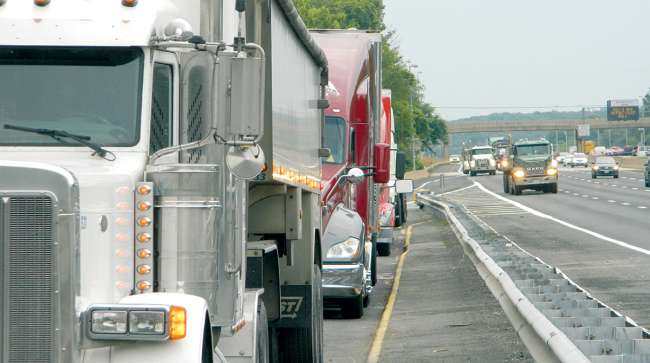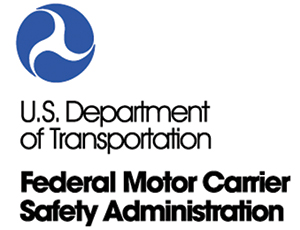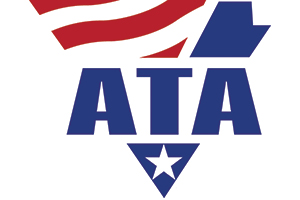Senior Reporter
FMCSA Receives More Than 2,600 Comments on HOS Proposal

[Stay on top of transportation news: Get TTNews in your inbox.]
The variety of the more than 2,600 written public comments on the Federal Motor Carrier Safety Administration’s proposed changes to its hours-of-service rules illustrate the challenge of finding solutions that address the concerns of the trucking industry’s different segments.
The agency’s request for public comment on the HOS Notice of Proposed Rulemaking ended on Oct. 21, and the agency must now digest the comments and craft a final rule, a process that could take months.
The proposal, announced Aug. 14, would allow truck drivers more flexibility with their 30-minute rest break and with dividing their time in the sleeper berth. It also would extend by two hours the duty time for drivers encountering adverse weather and extend the shorthaul exemption by lengthening the drivers’ maximum on-duty period from 12 hours to 14 hours and increasing the distance limit in which drivers can operate from 100 air miles to 150 air miles.

American Trucking Associations said it mostly supports the proposed changes, but had a few precautionary comments on some of the provisions.
While ATA fully supports the agency’s proposed 7/3 split of the 10-hour sleeper berth period, it said that FMCSA should conduct a field pilot program and only propose further flexibility — such as a 6/4 or 5/5 split — if the results demonstrate that additional splits would not harm driver performance or road safety. FMCSA had planned to conduct such a pilot, but has since decided it has enough data to make a determination.
The Owner-Operator Independent Drivers Association and some drivers would like to see the final rule offer an option of 5/5 hour or 6/4 hour split.
“Beyond expanding the split sleeper provision to 7/3, FMCSA should also include 6/4 and 5/5 splits in any final rulemaking,” OOIDA wrote, noting that 85% of members surveyed in 2019 supported the idea. “Drivers said they would use the 5/5 split an average of 2.02 times per week and the 6/4 split an average of 1.86 times per week,” the group said.
The Commercial Vehicle Safety Alliance expressed concern about potential confusion regarding changes to the 30-minute rest break rule. “FMCSA’s proposed change to the 30-minute rest break requirement eliminates the need for the existing exemptions to the rule,” it wrote. “Upon finalization of the change, FMCSA should revoke all existing applicable on-duty exemptions to the 30-minute rest break requirement.”
ATA said it supports the proposed expansion of the shorthaul exemption, but expressed concern that it could increase the number of drivers who would be no longer be required to use electronic logging devices or records of duty status relative to current rules.
The Truckload Carriers Association also expressed concern about the impact of this proposal on the ELD mandate.
“Many drivers who are currently required to log their HOS with an ELD could be exempted from this obligation under the proposed rule change. TCA is opposed to any proposal which would weaken the ELD mandate,” it said in its comments.

Like several other driver and trade organizations that filed comments, ATA and other trade organizations also expressed a lack of clarity regarding the adverse driving conditions provision in the proposal that would give drivers an extra two hours of driving time in bad weather.
“Although ATA supports the proposed changes allowing a driver to extend their on-duty time up to two additional hours, the agency should review and revise the existing definition and provide guidance on what constitutes ‘adverse conditions,’ ” ATA wrote.
Some organizations — including the National Transportation Safety Board, National Safety Council, Teamsters Union, Advocates for Auto and Highway Safety, and Road Safe America — oppose any changes to the HOS rules.
“Given this rulemaking combined with the FMCSA’s inaction on sleep apnea, fatigue risk management, and other fatigue countermeasures, the NTSB is concerned about the FMCSA’s efforts to mitigate fatigued driving among commercial drivers,” NTSB wrote. “The NTSB encourages the FMCSA to emphasize safety over flexibility in this and any future rulemaking pertaining to HOS and other fatigue rulemakings.”
The National Safety Council wrote, “If enacted, this rule would have a direct impact on driving safety by raising the risk for commercial motor vehicle drivers and all those who share the road with them.”
But Rachel Snow, a truck driver who lives in Tooele, Utah, filed comments that appeared to represent a widespread feeling about the proposal.
“I have been driving for 21 going on 22 years, accident-free,” Snow wrote. “I am 42 years old and I have always found the restrictions of the FMCSA HOS to be a burdensome restraint on my abilities. I understand that what is being proposed is not everything I would like to see offered, but it is a step in the right direction.”
Want more news? Listen to today's daily briefing:




